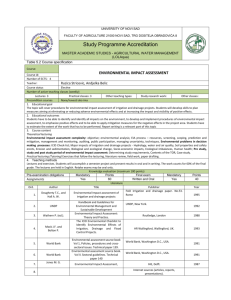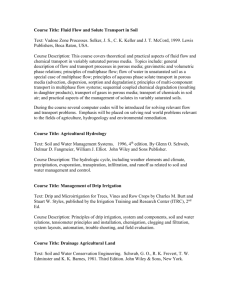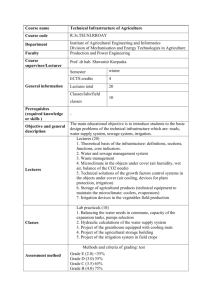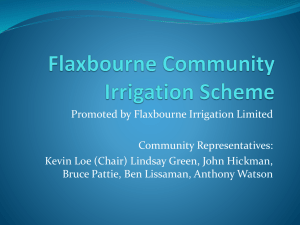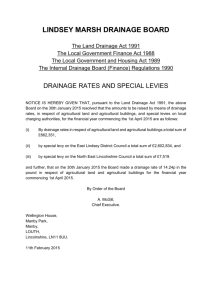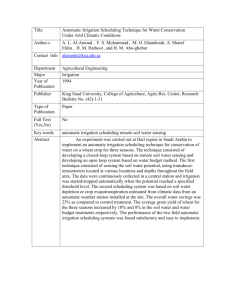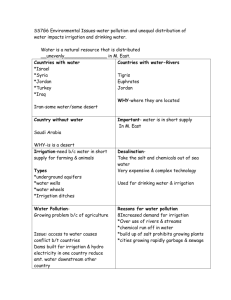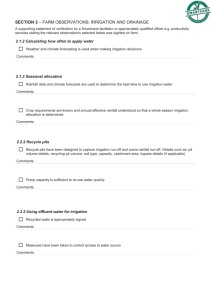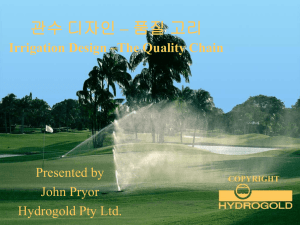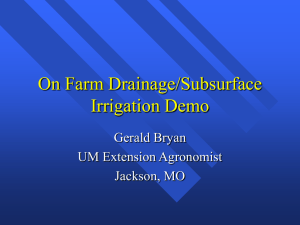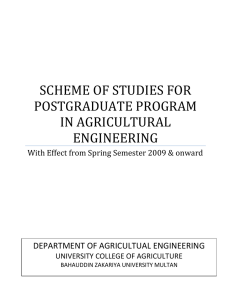ae30courseoutline.not
advertisement
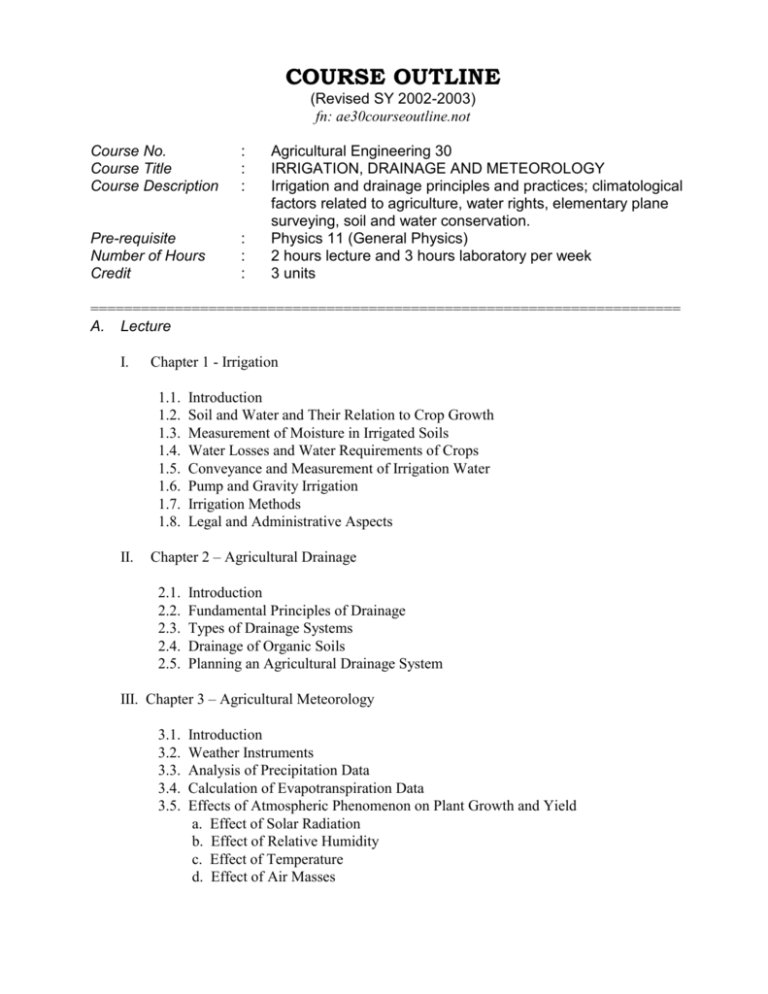
COURSE OUTLINE (Revised SY 2002-2003) fn: ae30courseoutline.not Course No. Course Title Course Description : : : Pre-requisite Number of Hours Credit : : : Agricultural Engineering 30 IRRIGATION, DRAINAGE AND METEOROLOGY Irrigation and drainage principles and practices; climatological factors related to agriculture, water rights, elementary plane surveying, soil and water conservation. Physics 11 (General Physics) 2 hours lecture and 3 hours laboratory per week 3 units ====================================================================== A. Lecture I. Chapter 1 - Irrigation 1.1. 1.2. 1.3. 1.4. 1.5. 1.6. 1.7. 1.8. II. Introduction Soil and Water and Their Relation to Crop Growth Measurement of Moisture in Irrigated Soils Water Losses and Water Requirements of Crops Conveyance and Measurement of Irrigation Water Pump and Gravity Irrigation Irrigation Methods Legal and Administrative Aspects Chapter 2 – Agricultural Drainage 2.1. 2.2. 2.3. 2.4. 2.5. Introduction Fundamental Principles of Drainage Types of Drainage Systems Drainage of Organic Soils Planning an Agricultural Drainage System III. Chapter 3 – Agricultural Meteorology 3.1. 3.2. 3.3. 3.4. 3.5. Introduction Weather Instruments Analysis of Precipitation Data Calculation of Evapotranspiration Data Effects of Atmospheric Phenomenon on Plant Growth and Yield a. Effect of Solar Radiation b. Effect of Relative Humidity c. Effect of Temperature d. Effect of Air Masses ii B. Field Laboratory Exercises 1. 2. 3. 4. 5. 6. 7. 8. 9. Determination of an Individual’s Pace Factor Measurement of the Horizontal Distance of a Straight Course on a Level Ground Measurement of the Horizontal Distance of a Straight Course on a Sloping Ground Differential Leveling Determination of the Area of a Rectilinear Polygon by Surveying Tape Determination of the Soil Moisture Content by the Gravimetric Method Determination of the Discharge of an Open Canal Basic Meteorological Instruments and Their Usage Gathering of Basic Agrometeorological Data C. Grading Scheme (Cumulative System) Overall Term Grade (Midterm or Final): TG = 60% LEC + 40% LAB Laboratory Term Grade: LAB = 60% Exams + 40% Lab Reports Final Grade: FG = 1/3 MT + 2/3 FT D. References CAOILI, A.A. et al., 1967. Irrigation and Drainage Principles and Practices. Department of Agricultural Engineering, UP at Los Baños, Laguna. CASANGCAPAN, M.E. 1990. Performance, Analysis and Testing of a Dual-Acting Controlled Leak (DACL) Irrigation Canal Offtake Control. Unpublished Master of Applied Science Thesis, Lincoln University, New Zealand. CHANG, J. 1971. Climate and Agriculture, An Econological Survey. Aldine Publishing Company, Chicago. SCHWAB, G.O., et. Al., 1981. Soil and Water Conservation Engineering. Third Edition. John Wiley and Sons, Inc. New York. ISRAELSEN, O.W. and V.E. HANSEN. 1980. Irrigation principles and practices. Fourth Edition. John Wiley and Sons, Inc, New York. LA PUTT, J. 1981. Elementary Surveying: Instructional Manual. University of Baguio, Baguio City. SCHWAB, G.O. AND FREVERT, R.K., 1985. Elementary Soil and Water Engineering. Third Edition. John Wiley & Sons. SOIL CONSERVATION SERVICE. 1973. Drainage of Agricultural Land. New York Water Information Center, Inc. M. E. Casangcapan Asst. Prof.
